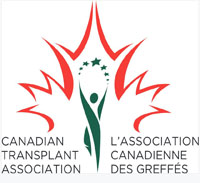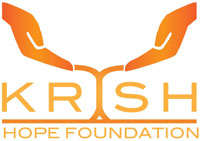
FAQs
Can anyone register to be an organ and tissue donor?
Any Ontario resident who is at least 16 years of age can register their consent to donate their organs and tissues after their death.
Can I choose which organs and tissue I want to donate?
You may indicate your decision to donate all organs and tissue or only specified organs and tissue.
Does my age, pre-existing medical condition or sexual orientation prevent me from being an organ donor?
Everyone can be a donor regardless of age, medical condition or sexual orientation. Your decision to register should not be based on whether you think you would be eligible or not. A donor's eligibility is determined by the health care team upon their death.
What does it mean to consent to donate organs and tissue for research?
Much medical research depends on the use of human biological material. It often provides the best way of understanding how the body works and reacts to treatment. It can also help advance and improve organ and tissue transplantation. If for some reason your organs and tissues cannot be transplanted, they can be donated for research purposes if you have specifically indicated consent to donate organs and tissue for both transplant and research.
How can I donate my body to science?
Donating your organs and tissues for research is different than donating your body to science. If you do not wish to donate organs, you may want to support teaching and research activities at a medical school by considering whole body donation, an important gift to the training of professionals in health-related disciplines.
For more information about whole body donation, please call the anatomy school of your choice. If you give your body to medical science, your organs and tissue will not be available for transplantation. Similarly, if you donate organs or tissue, you cannot donate your body to science.
When does organ and tissue donation become an option?
Living organ donation may be an option for a healthy adult who has a family member or close friend in need of a kidney, liver, lung or small bowel transplant. With living donation, a kidney or portion of the liver, lung or small bowel is removed from the donor and transplanted into the patient in need of a new organ.
Deceased organ donation can take place when someone has been declared brain dead, a doctor has determined the organs can be used for transplant, and loved ones opt to artificially maintain vital organs by ventilator to keep them suitable for transplant. This type of donation is referred to as donation after neurological determination of death.
Another option for donation is organ donation after cardiac death (DCD). DCD offers families the option of donation in cases where neurological criteria for death have not been met, and the decision to withdraw life-sustaining treatment has been made. A DCD patient has no hope of survival or meaningful functional status, but does not meet brain death criteria.
Tissue donation can take place in most cases when someone has died, as long as the tissue is determined suitable for transplant by a doctor. With tissue donation, there is no need for blood flow to be maintained by artificial ventilation after death.
How long will the donation process take?
The recovery of organs and tissues may take up to 24 hours. It typically does not impact funeral or burial arrangements, and often occurs while family members are making plans and contacting others. Any concerns can be discussed with the Trillium Gift of Life Network's Organ and Tissue Donation Coordinator.
Is there any cost associated with process of donation?
Families should not incur any costs associated with the donation process.
Can I designate the recipient of my organs and tissue?
Donated organs and tissue are given to individual recipients based on need, blood type, genetic match and other criteria. "Directed-donation," as it is known, is not practiced in Canada. Only through living donation can the recipient be designated. Living donation may be an option for kidney, liver or lung transplants. If you are interested in being considered as a living donor, discuss this with your doctor.
Why Should I donate my organs?
An organ donor can save up to 8 lives and enhance as many as 75 more.
You can give someone a second chance at life, to love and share laughter with his family.
How can I register to donate?
§ Today, you can register your consent by calling AMAR KARMA ORGAN DONATION SOCIETY to mail or drop consent form for you
§ Or download form at www.amarkarma.org
§ Alternatively, at an OHIP office when you renew or register for your health card
§ Check out health Ontario’s new online registry
https://beadonor.mighty.ca/amarkarma
- AmarKarma
- About Us
- Our Team
- Organ Donation
- Our Sponsors
- Volunteer
- Why Volunteer
- How you can volunteer
- Contact
- Events
- Upcoming Events
- News & Press
- FAQs





